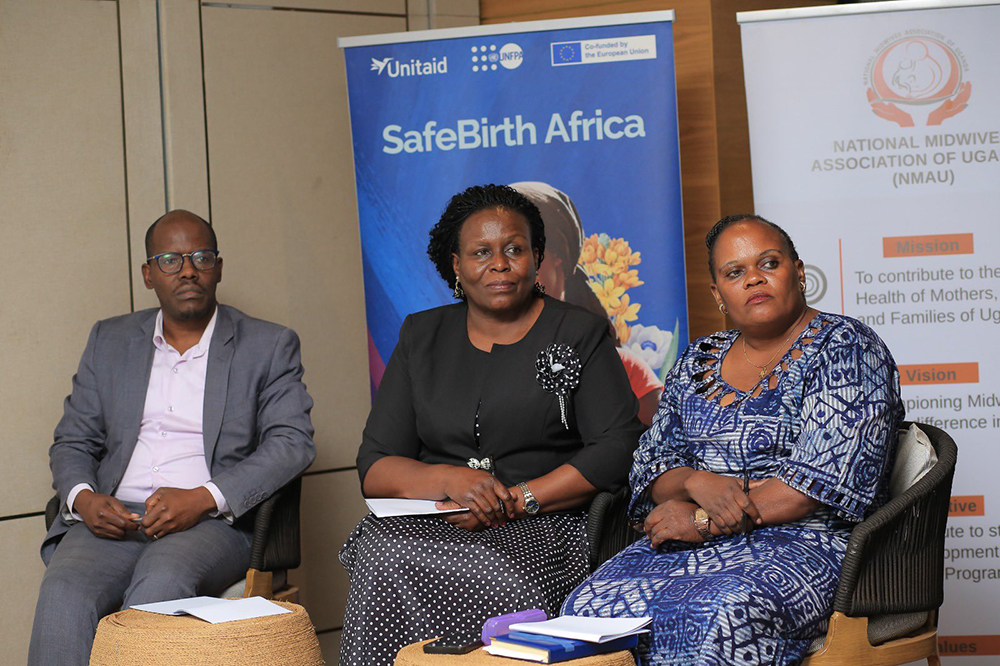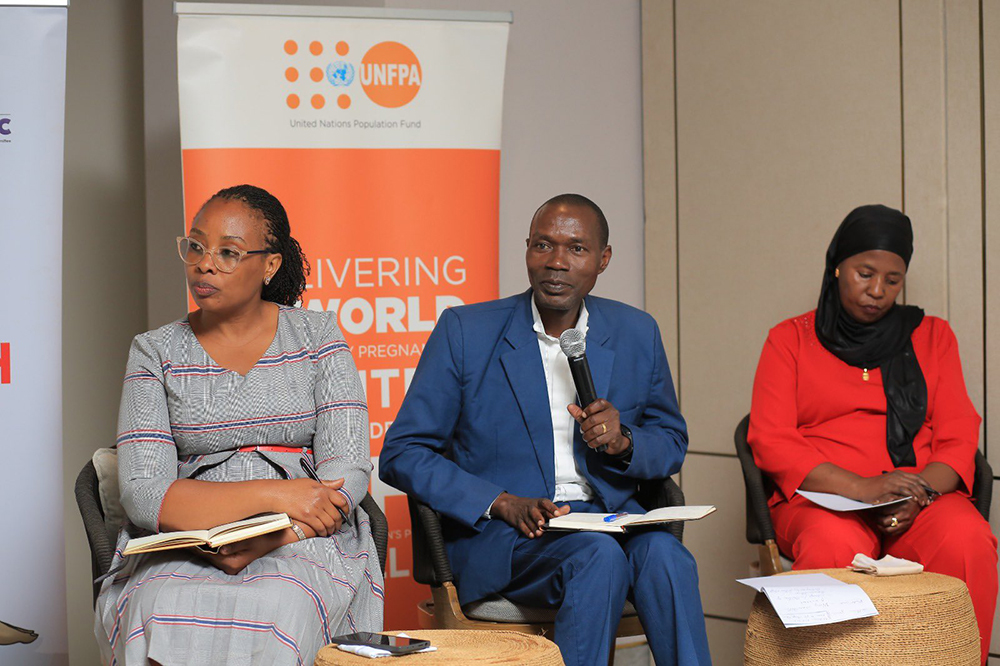Postpartum haemorrhage leading killer of women, calls to empower midwives
According to the State of the World’s Midwifery 2021 report, scaling up midwife-ledcare could save millions of lives globally, yet the East and Southern Africa region still faces a shortage of nearly 300,000 midwives.
Panelists at midwives dialogue on PPH convened in Kampala. (Courtesy photo)
By Jacky Achan
Journalists @New Vision
___________
Uganda has reduced maternal deaths in recent years, but postpartum haemorrhage (excessive bleeding after childbirth) remains the leading killer of mothers, accounting for one in three maternal deaths, health experts have warned.
Speaking at a High-Level Midwifery Dialogue in Kampala on September 4, Juliana Lunguzi, Programme Coordinator for Sexual and Reproductive Health at UNFPA-Uganda, the United Nations sexual and reproductive health agency, said midwives are central to efforts to curb the problem.
The meeting was convened by the Ministry of Health and the National Midwives Association of Uganda under the theme “The role of midwives in addressing postpartum haemorrhage and other complications that threaten mothers’ lives.”
“Midwives are not only the first responders at birth; you are the linchpin of Uganda’s maternal health system,” Lunguzi told participants, adding that better training and support for midwives could prevent up to 67% of maternal deaths.
Panelists. (Courtesy photo)

Panelists. (Courtesy photo)
Scaling up midwife-led care
According to the State of the World’s Midwifery 2021 report, scaling up midwife-ledcare could save millions of lives globally, yet the East and Southern Africa region still faces a shortage of nearly 300,000 midwives.
Lunguzi stressed that prevention must go beyond delivery rooms. She highlighted family planning as a life-saving intervention, with the potential to avert up to 30% of maternal deaths by reducing high-risk pregnancies.
She urged midwives to reflect on their role not only as care providers but as leaders in shaping maternal health outcomes. “Today’s dialogue is not just about policies and supplies; it is also about personal reflection on the power each midwife holds,” she said.
The priority areas
Lunguzi called for three priorities: empowering midwives as leaders in decision-making, strengthening preparedness through access to reliable supplies and emergency services, and integrating family planning into maternal care.
She challenged midwives to see themselves as “architects of change” in ending preventable maternal deaths.
The dialogue, which followed the close of Uganda’s Postpartum Haemorrhage Awareness Month held in August, focused on strengthening midwifery leadership, improving access to life-saving supplies and emergency services, and integrating family planning into maternal care.
Currently, the Safe Birth mission by the Ministry of Health, supported by the European Union and the UNFPA, aims to reduce maternal and infant deaths by improving healthcare for mothers during childbirth.
Frontline workers are being tooled and undergoing skills enhancement to manage complications like postpartum haemorrhage. In addition to availing essential medications and supplies.
Officials said empowering midwives in decision-making and professional development would be critical to achieving further progress in reducing maternal mortality.
